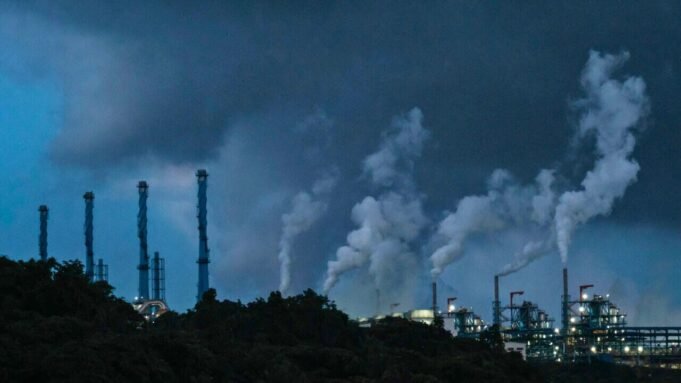Jakarta (AFP) – Indonesia is the world’s largest nickel producer. A new report says the country is ignoring human rights abuses and environmental damage in its nickel industry. Nickel is a key ingredient in electric car batteries and clean energy. But the report shows a dark side to the industry.
The report was produced by environmental and human rights groups. They say nickel mining and processing in Indonesia is fraught with problems. Workers face terrible conditions. The environment is being destroyed. Indigenous people are being forced off their land. The government is accused of ignoring these problems in order to grow the economy and attract foreign money.
Worker Exploitation and Poor Working Conditions
Reports say workers in Indonesia’s nickel industry are treated badly. Many work long hours for little pay. Some face dangerous conditions. Workers are exposed to dangerous chemicals. They lack safety equipment. Many live in crowded, dirty homes.
Some workers are denied basic rights. They cannot join unions or complain about their treatment. The report also found child labor at some nickel mines. This violates Indonesian and international law.
Environmental damage
Reports say nickel mining is damaging the environment. Large-scale mining causes deforestation and water pollution. In areas such as Sulawesi and Halmahera, ecosystems are being destroyed. This threatens wildlife and the lives of local people.
Nickel ore processing is also problematic. It uses a lot of energy and is polluting. Many smelters use coal, which adds to air pollution. This goes against global efforts to reduce emissions. Environmental groups say Indonesia’s clean energy goals are undermined by the practice.
Indigenous Peoples Displaced
Indigenous peoples suffer the most. Many are forced off their land to make way for mining. They often receive little or no compensation. Some lose their traditional way of life. This breaks down their culture and social bonds.
Losing land also damages their economy. Many indigenous communities depend on agriculture and fishing. Without access to natural resources, some fall into poverty. This worsens social inequality.
Government Fails to Act
Reports say the Indonesian government does not enforce its own laws. Companies can break the rules with impunity. Environmental and labor protections exist, but are not enforced. The government focuses on economic growth and foreign investment. This creates a culture where companies can exploit workers and destroy the environment without fear.
Foreign investors, especially from China, have helped develop Indonesia’s nickel industry. The report calls on these investors to be held accountable. They must ensure their operations are ethical and sustainable.
What to do
The report suggests several actions. Indonesia must do a better job enforcing labor and environmental laws. Mining operations must be more transparent. Indigenous communities must be involved in decision-making. The international community must also hold Indonesia accountable. Companies must ensure the nickel they use is ethically sourced.
As nickel demand rises, report warns of human and environmental costs. Without change, Indonesia’s nickel industry will continue to harm people and the planet. This will undermine clean energy goals.
Conclusion
Indonesia’s nickel industry at a turning point. The country could lead in clean energy. But it must fix its nickel sector’s problems. Report calls for urgent action. Indonesia and its international partners must ensure the nickel industry respects human rights and protects the environment.
The world’s transition to clean energy should not disadvantage the most vulnerable. As demand for nickel rises, so does the need for ethical sourcing. The Indonesian government and the global community must act now to create a just and sustainable future.

















